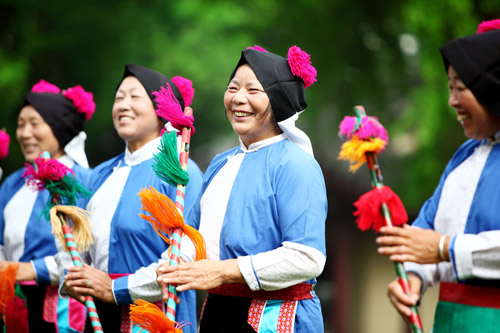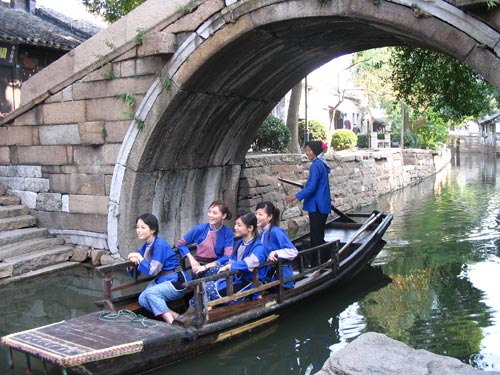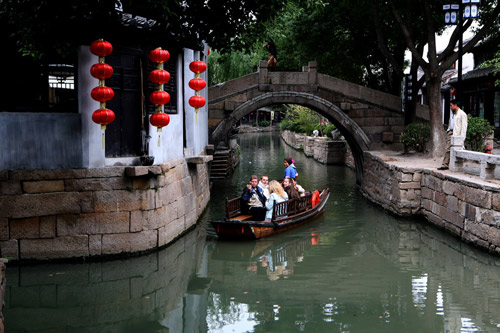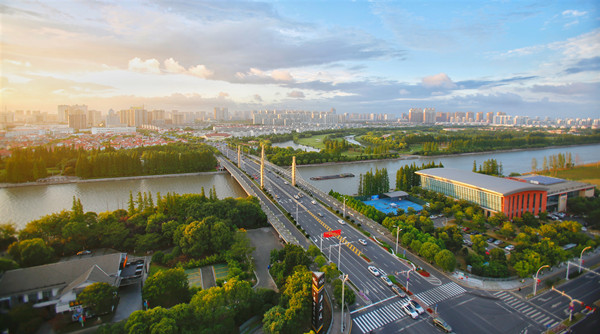Six most popular ancient towns
Though natural landscapes like mountains and rivers tend to inspire writers and poets, historical spots seem to attract more ordinary people. This is especially true for ancient towns in regions south of the Yangtze River.
1 Qiandeng ancient town
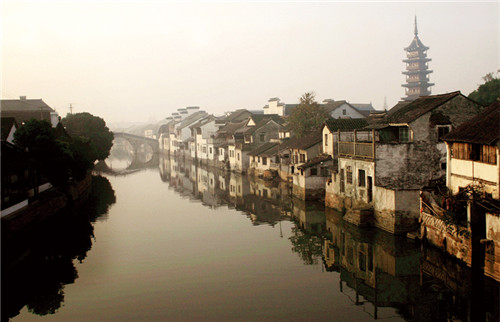
This town is the hometown of the famous patriotic scholar Gu Yanwu and the birth place of Kunqu Opera.
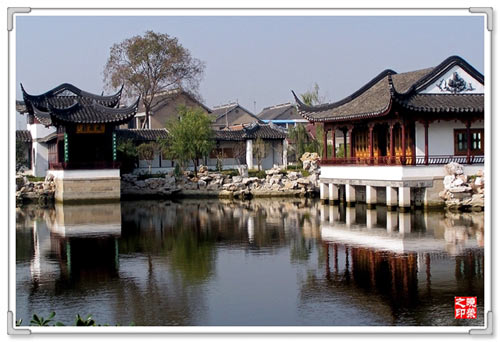
The 2-kilometer stone path in the town, built in the Ming (1368-1644) and Qing (1644-1911) dynasties, is the most well-kept stone path in Jiangsu province.
2 Mudu ancient town
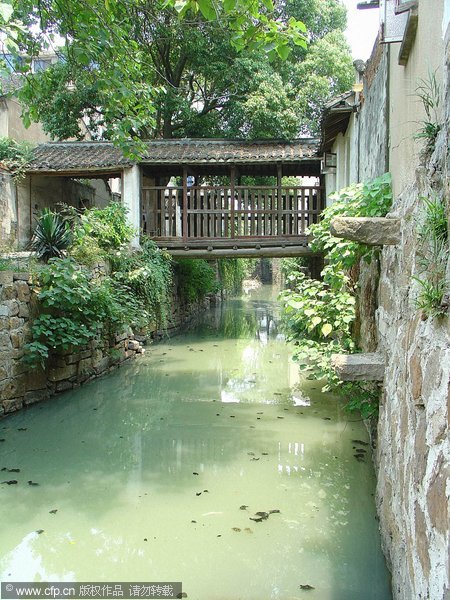
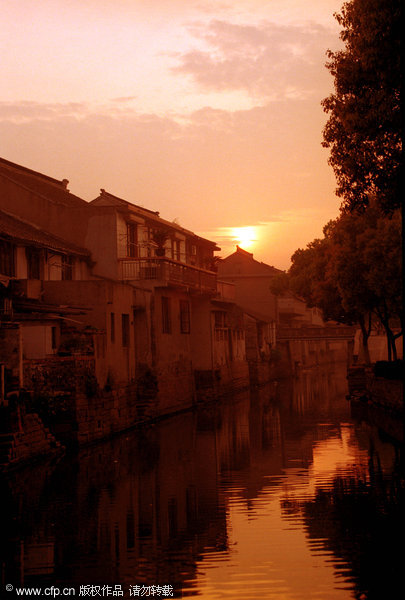
Mudu [Photo/CFP]
It is said that Emperor Qianlong once visited this town. It has beautiful scenery and rich resources. It is surrounded by Tianping Mountain, Lingyan Mountain, Lion Mountain and Qizi Mountain, which is how it became known as a “treasure bowl.” China’s first royal garden established atop a mountain was built on Lingyan Mountain.
Tianping Mountain, located northwest of the town, is famous for its maple leaves, clean springs and rocks.
3 Tongli ancient town
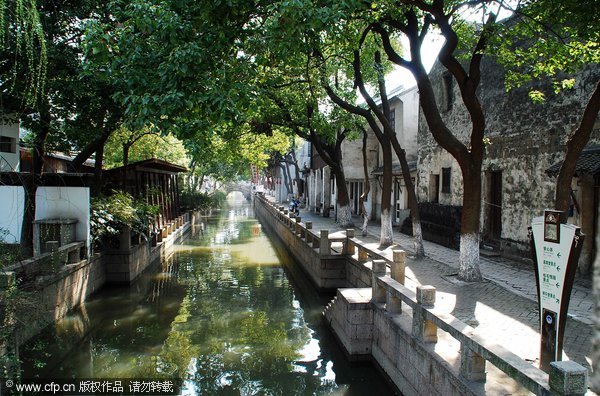
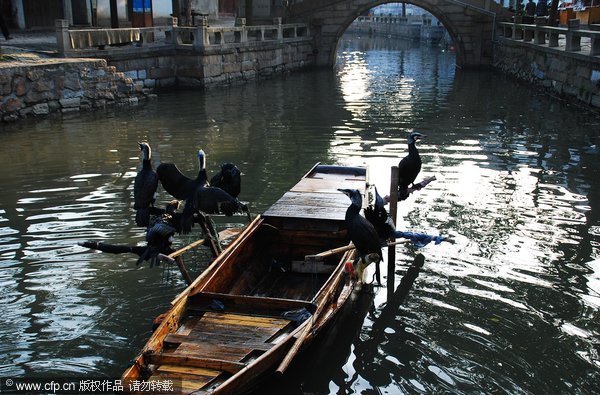
The town is surrounded by five lakes. Roads and rivers cross in the town, and ancient bridges can be found throughout.
Siben Bridge, the oldest bridge in the town, was built more than 700 years ago. The bridge still stands firmly.
4 Zhouzhuang ancient town
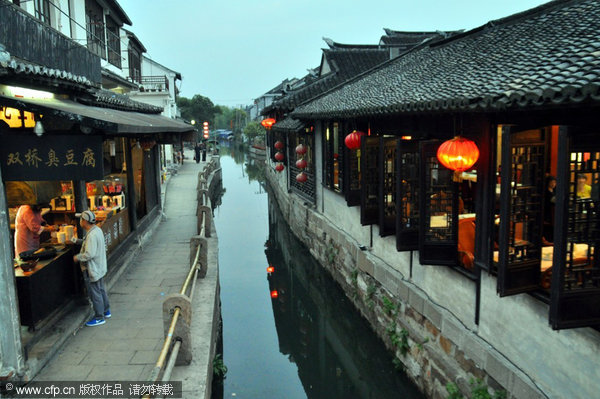
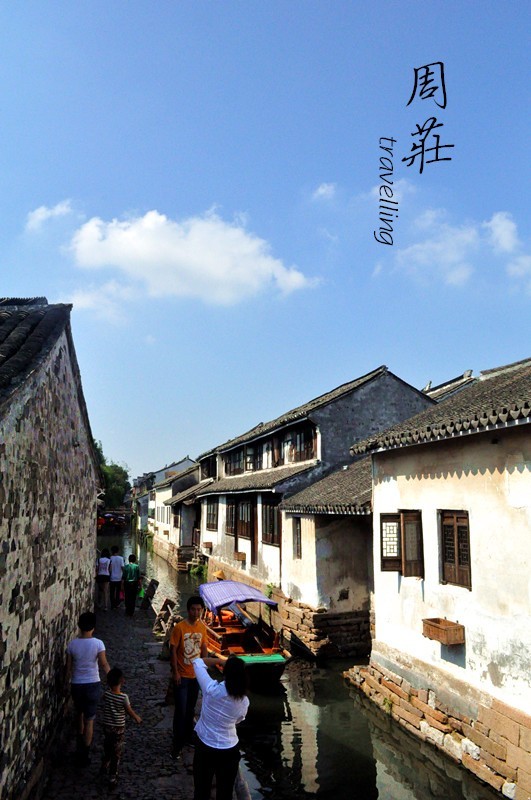
5 Jinxi ancient town
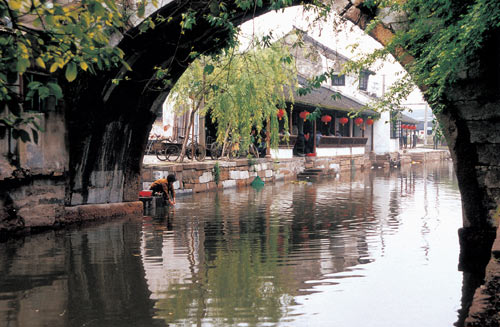
This town has been famous for more than 2,000 years. It is said that in the Song Dynasty (960-1279), an emperor’s concubine surnamed Chen liked the town so much that she decided to be buried here after her death. The town was then called Chen’s tomb for more than 800 years until 1993.
6 Luzhi ancient town

